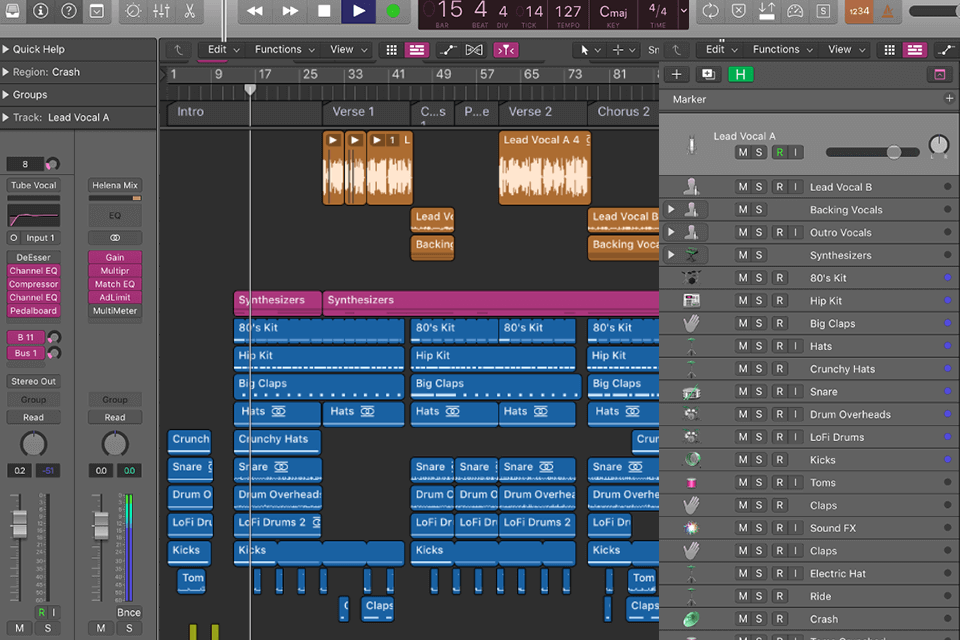The music producer plays a critical role in the music-making process, acting as a creative guide, technical expert, and project manager. Their job involves overseeing the production of songs and albums, ensuring the music sounds polished, and bringing out the best in the artist’s work. But what exactly does a music producer do, and why are they so vital to the music industry? Let’s explore their responsibilities and the impact they have on music creation.

What Does a Music Producer Do?
A music producer wears many hats, blending technical skills with artistic vision to bring music to life.
- Creative Direction: Producers help shape the overall sound and feel of a track or album, working closely with artists to align with their vision.
- Arrangement and Composition: They often assist with song arrangements, suggesting changes to improve flow, harmony, or impact.
- Overseeing Recording Sessions: Producers ensure recording sessions run smoothly, guiding artists and musicians to deliver their best performances.
- Sound Engineering: Some producers are involved in technical tasks like mixing and mastering, ensuring the final track meets industry standards.
Why Are Music Producers So Important?
Music producers are the unsung heroes behind many hit songs and albums. Their importance lies in their ability to balance artistry with technical precision.
- Shaping the Sound: A producer’s expertise can transform a simple melody into a chart-topping hit by adding layers, effects, and dynamics.
- Guiding the Artist: Producers act as mentors, helping artists refine their ideas and realize their potential.
- Maintaining Quality: They ensure the final product is polished and ready for distribution, meeting both the artist’s and audience’s expectations.
- Keeping the Project on Track: Producers manage budgets, schedules, and resources, ensuring the project is completed on time and within scope.
Types of Music Producers
Music producers come in different forms, each bringing unique skills to the table.
- Creative Producers: These producers focus on the artistic aspects, such as songwriting, arrangements, and emotional storytelling.
- Technical Producers: Experts in sound engineering, they handle mixing, mastering, and technical sound design.
- Executive Producers: These professionals oversee the financial and logistical aspects, managing budgets and coordinating with labels.
- Beat Makers: Often associated with hip-hop and electronic music, they create the instrumental foundation for songs.
Key Skills Every Music Producer Needs
Music producers require a combination of technical expertise, creative flair, and interpersonal skills.
- Technical Knowledge: A strong understanding of recording equipment, software, and sound engineering techniques.
- Creativity: The ability to think outside the box and innovate unique sounds and arrangements.
- Leadership: Strong communication and leadership skills to guide artists and manage teams effectively.
- Time Management: The ability to balance multiple tasks and deadlines while maintaining high quality.
- Adaptability: Producers often work with various genres and artists, requiring flexibility and a willingness to experiment.
The Evolution of Music Production
The role of the music producer has evolved significantly with advances in technology and changes in the industry.
- Analog to Digital: The shift from analog tape machines to digital audio workstations (DAWs) like Pro Tools and Logic Pro has revolutionized production.
- Home Studios: Affordable recording equipment has made it easier for producers to work from home, expanding access to music production.
- Collaboration Tools: Online platforms enable producers to collaborate with artists worldwide, breaking geographical barriers.
- Diverse Genres: Today’s producers work across an array of genres, blending styles and experimenting with new sounds.
Famous Music Producers and Their Impact
Many legendary producers have shaped the music industry with their innovative approaches and iconic works.
- Quincy Jones: Known for his work with Michael Jackson, he crafted timeless hits like Thriller.
- Rick Rubin: A pioneer of blending genres, he worked with artists ranging from Johnny Cash to the Red Hot Chili Peppers.
- Dr. Dre: A hip-hop icon, Dre revolutionized the genre with his production for N.W.A, Eminem, and others.
- Max Martin: A pop hitmaker responsible for chart-toppers from Britney Spears, Taylor Swift, and The Weeknd.
Conclusion
The music producer is a cornerstone of the music-making process, blending creativity, technical expertise, and leadership to bring songs to life. Their influence shapes the sound of music, turning ideas into polished tracks that resonate with listeners. Whether guiding an artist, innovating with technology, or managing the production process, music producers are vital to the success of any musical project.










